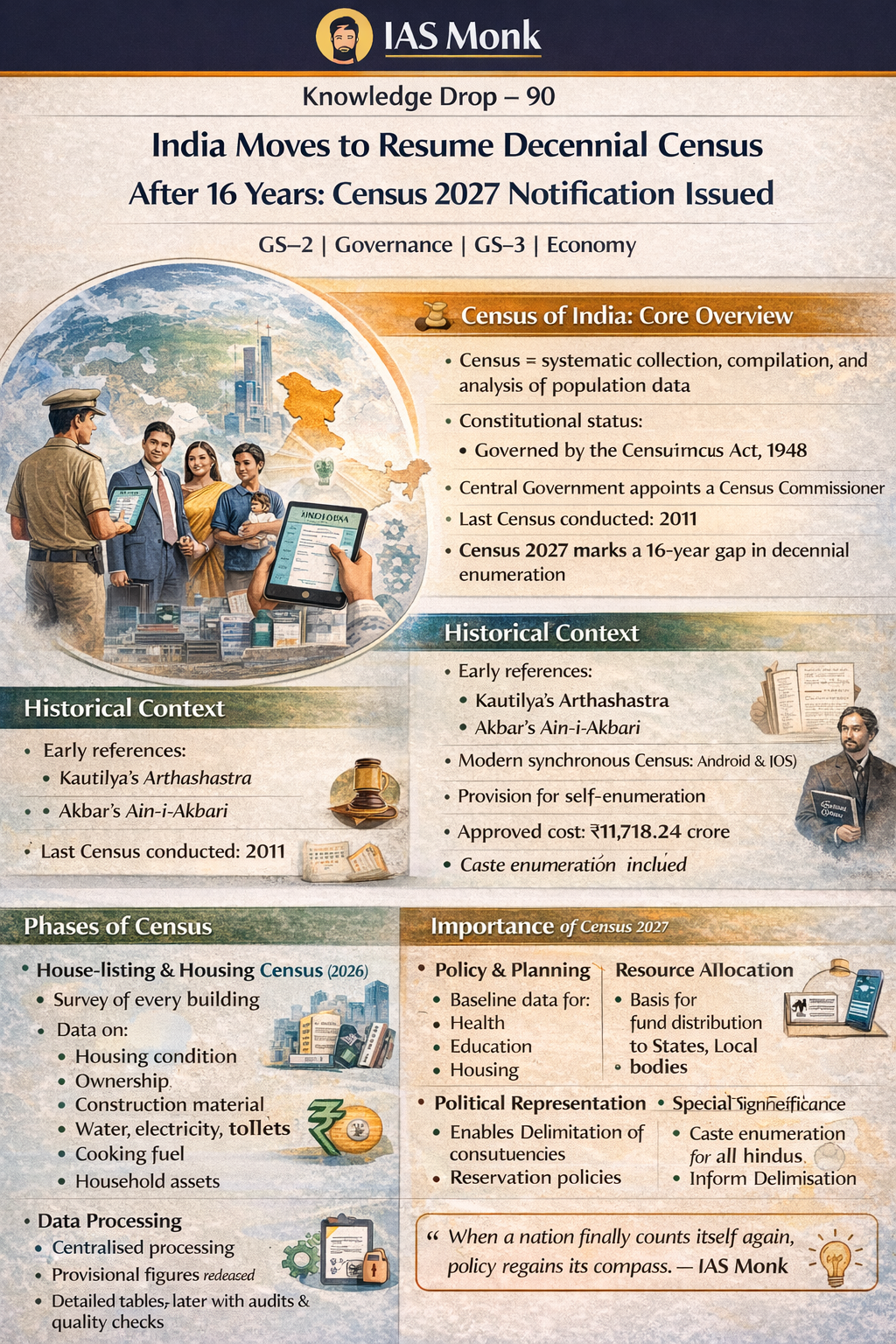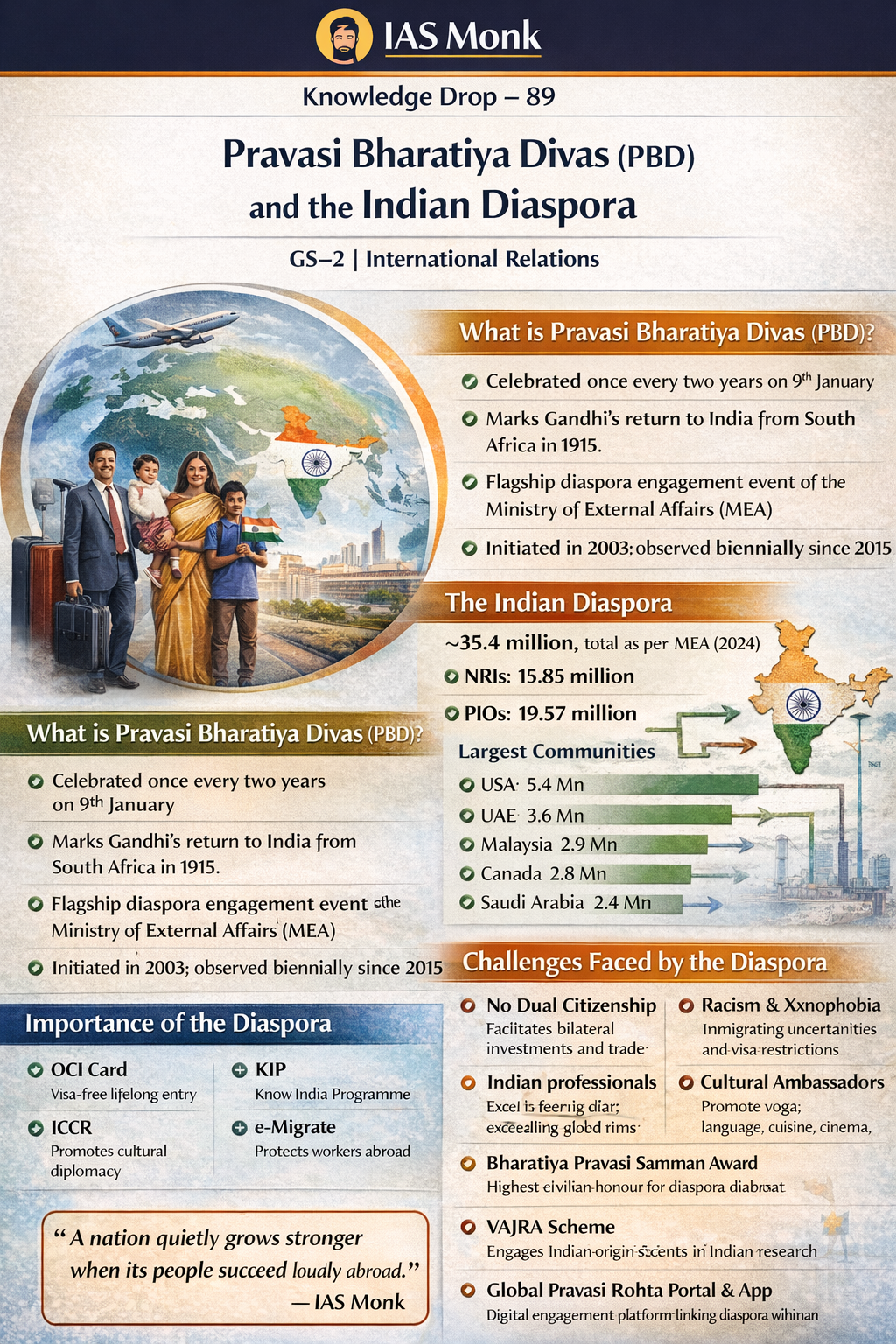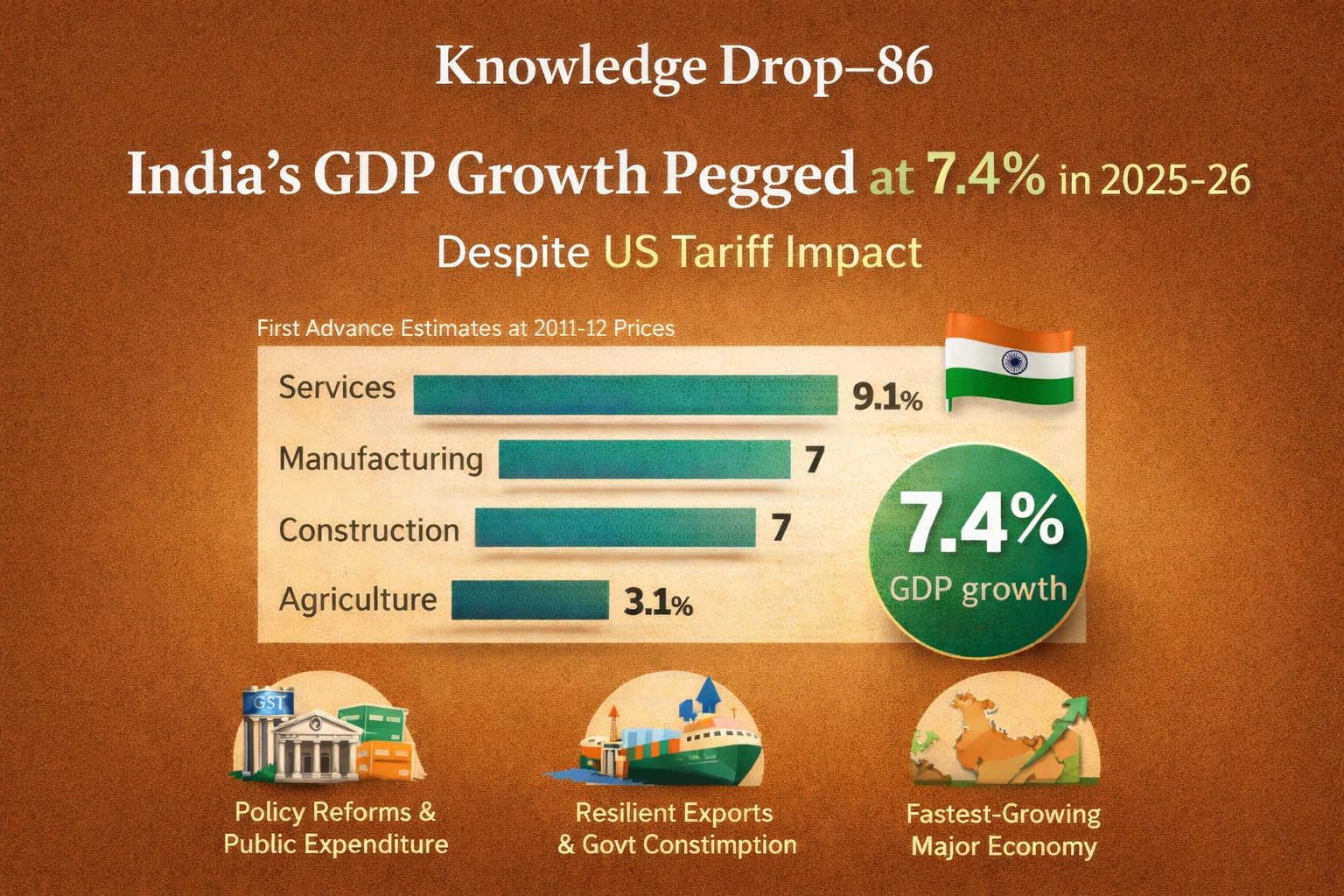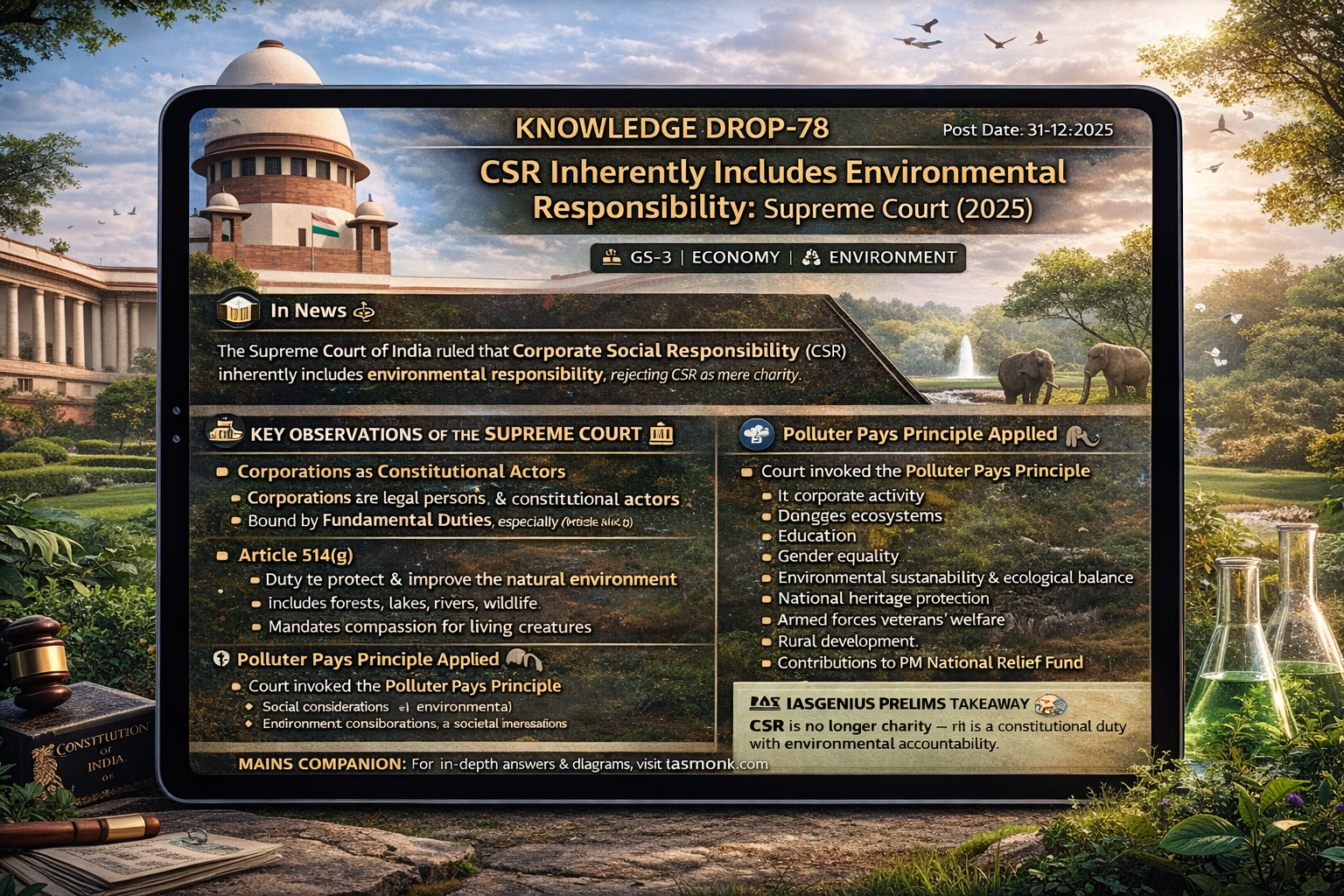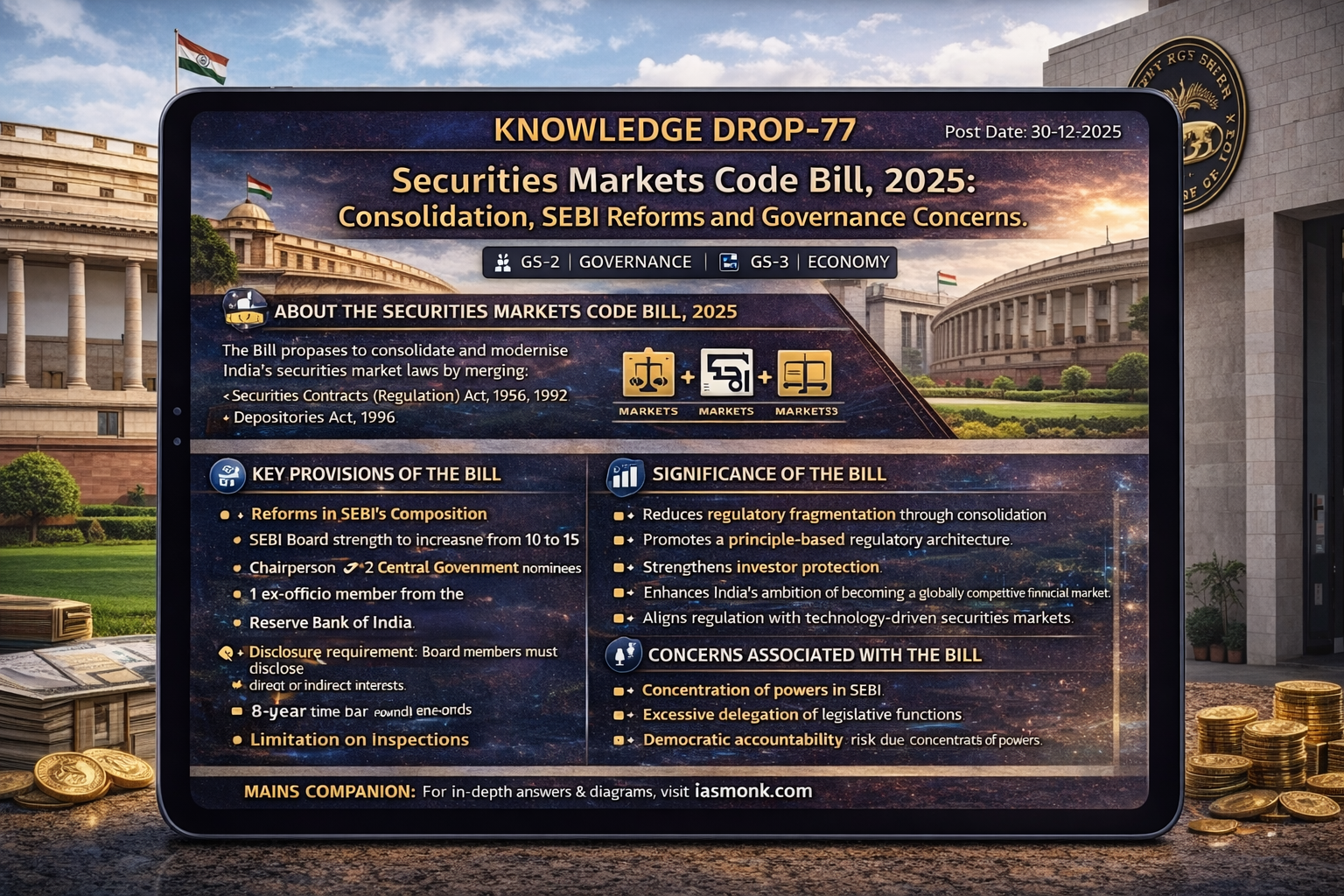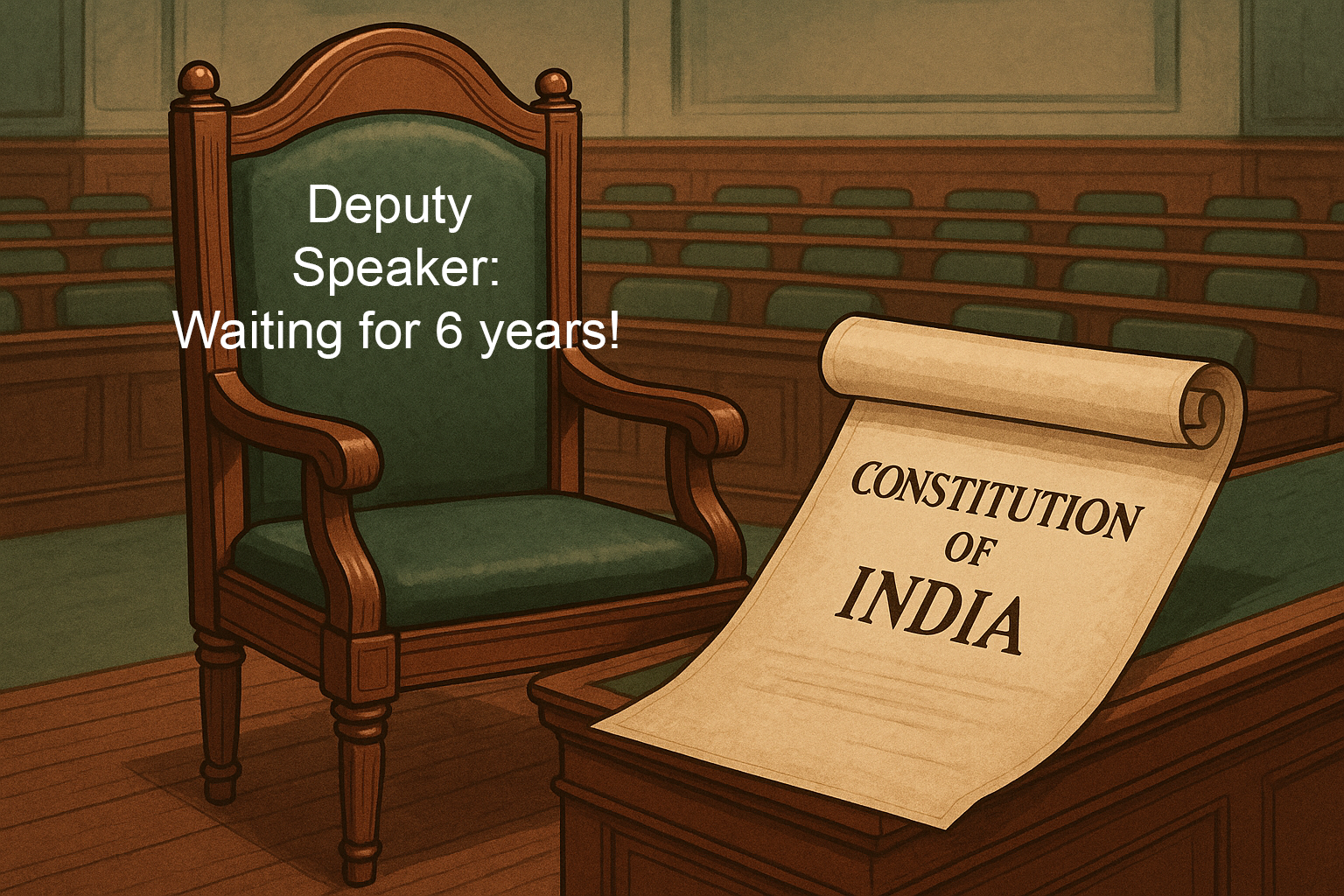
🧭June 1, 2025 Post 2: The Empty Chair of Balance: Why India Needs Its Deputy Speaker Back | High Quality Mains Essay | Prelims MCQs
The Empty Chair of Balance: Why India Needs Its Deputy Speaker Back

NATIONAL —
Post Date: June 1, 2025
Thematic Focus: GS2 / Polity & Governance
🪷 Intro Whisper
In the House where voices echo the will of the people, one seat meant for balance has remained conspicuously vacant — for six long years. As India celebrates its electoral vibrance, can it afford to ignore a key pillar of its legislative structure?
🔍 Key Highlights
- Deputy Speaker’s Role:
The Deputy Speaker is the constitutionally mandated second presiding officer of the Lok Sabha. In the absence of the Speaker, they assume all presiding powers, including over joint sittings. - Constitutional Mandate:
Article 93 directs that the Lok Sabha “shall, as soon as may be,” elect both a Speaker and Deputy Speaker. Rule 8 empowers the Speaker to fix the election date. - Current Status:
The post remained vacant for the entirety of the 17th Lok Sabha (2019–2024), and continues to be unfilled even as the 18th Lok Sabha is constituted. - Historical Practice:
Though the Deputy Speaker is usually chosen from the opposition, the first four post-Independence were from the ruling party. The post has been occupied in every Lok Sabha — except the last. - Functional Significance:
While presiding, the Deputy Speaker enjoys the same powers as the Speaker and can cast the deciding vote in case of a tie. When not presiding, they function like a regular MP but have the privilege of automatic chairmanship when part of a committee. - Concerns Over Delay:
• Violates constitutional spirit
• Weakens opposition representation
• Risks procedural void during Speaker’s absence
• Undermines democratic functioning and balance
🧭 Concept Explainer: Effective Majority and Casting Vote
- Effective Majority: This refers to more than 50% of the total strength of the House excluding vacancies. This is the majority required for removing the Deputy Speaker.
- Casting Vote: When a vote in the House results in a tie, the presiding officer (including the Deputy Speaker when in chair) can cast a deciding vote.
📚 GS Paper Mapping
- GS Paper 2 – Polity & Governance
→ Separation of powers
→ Functioning of the Legislature
→ Parliamentary responsibilities
→ Constitutional provisions and values
🌱 A Thought Spark — by IAS Monk
“When silence settles on the seat meant to echo balance, democracy leans to one side. In every institution, even the absence of a voice speaks volumes.”
High Quality Mains Essay For Practice :
Word Limit 1000-1200
Speaker and Deputy Speakers: Custodians of Democracy, Not Just Lok Sabha
Introduction
In the architecture of democratic governance, the Speaker and Deputy Speaker of the Lok Sabha are often seen as mere functionaries — chairs who regulate debate, count votes, and maintain decorum. Yet, beneath their procedural roles lies a constitutional sanctity that elevates them as custodians of the Republic’s most precious ideals: neutrality, institutional integrity, and democratic resilience. They are not just officers of the House, but symbolic guardians of the Indian Parliament’s dignity and the spirit of our Constitution. Recent debates surrounding the prolonged vacancy of the Deputy Speaker’s post in the 17th Lok Sabha have reignited questions about the deeper constitutional role these offices play, beyond routine parliamentary management.
The Constitutional Mandate
The Indian Constitution, under Article 93, mandates that the House of the People (Lok Sabha) shall, as soon as may be, choose two of its members to be respectively the Speaker and the Deputy Speaker. The intention behind this provision is not merely administrative — it is to ensure that the legislative institution always has functional, impartial leadership regardless of political turmoil. The Speaker is elected through a resolution passed by the House, and while the timeline is not strictly defined, constitutional conventions demand swiftness in filling both posts.
Despite the lack of a legal deadline, the constitutional philosophy is clear: the Speaker and Deputy Speaker must exist as active guardians of parliamentary procedure and democratic propriety.
The Speaker: More Than a Presiding Officer
The Speaker of the Lok Sabha occupies a uniquely paradoxical position. Elected as a member of a political party, once chosen for the role, the Speaker is expected to rise above party lines and act with impartiality. The Speaker’s duties include presiding over sessions, maintaining order, deciding on the admissibility of questions and motions, interpreting rules, and referring Bills to committees. But there’s a more critical democratic role that often goes unnoticed.
The Speaker is also the final authority on disqualification of members under the anti-defection law (as per the Tenth Schedule), thereby influencing the strength of party coalitions and the stability of governments. This has led to frequent criticism regarding delayed decisions and potential bias. Nevertheless, in principle, the Speaker is meant to function as an institutional buffer between the executive and the legislature — a role foundational to democratic balance.
Deputy Speaker: The Silent Pillar of Continuity
Often relegated to the background, the Deputy Speaker is no less significant. As per Article 95(1), the Deputy Speaker performs the duties of the Speaker when the office is vacant or the Speaker is absent. He or she also presides over joint sittings of Parliament in the Speaker’s absence and becomes the default chairperson of parliamentary committees when appointed.
The importance of this role becomes clear during political or procedural crises. The Deputy Speaker ensures continuity in the functioning of the House when the Speaker is unavailable, thereby preventing legislative stalling and preserving institutional integrity.
Vacancy and Constitutional Anxiety
The absence of a Deputy Speaker in the 17th Lok Sabha (2019–2024), and its continued vacancy even after the formation of the 18th Lok Sabha, has sparked serious concerns. It has been widely criticized as a violation of constitutional spirit and a disregard for institutional balance. This vacancy not only deprives the Opposition of a meaningful role in parliamentary proceedings — since traditionally, the Deputy Speaker is chosen from the Opposition — but also weakens the safeguards that prevent concentration of power in the Speaker’s office.
The continued vacancy also demonstrates a growing trend of executive dominance over the legislature, eroding checks and balances. Without a Deputy Speaker, the Lok Sabha runs the risk of becoming a one-person-dependent institution, which is dangerous in any vibrant democracy.
Global Parallels and Best Practices
In parliamentary democracies like the UK, Canada, and Australia, the roles of the Speaker and Deputy Speakers are governed by strong conventions and structured timelines. The UK House of Commons, for example, ensures that Deputy Speakers are elected by secret ballot and represent multiple parties, ensuring balance.
These models show that the neutrality and presence of Deputy Speakers is considered vital to upholding public trust in Parliament. India, while inspired by the Westminster model, has yet to fully institutionalize such democratic best practices.
Balancing Representation and Impartiality
One of the core reasons for having a Deputy Speaker from the Opposition is to symbolically and practically ensure representational fairness. When the Opposition is visibly included in procedural leadership, parliamentary debates gain legitimacy. This not only safeguards democratic inclusivity but also allows for more bipartisan decision-making.
However, both the Speaker and Deputy Speaker face constant pressure to retain impartiality while operating within a political environment. Several instances in Indian history have shown how Speakers have struggled to remain neutral — especially when deciding on disqualification petitions or allowing debates on controversial issues. In such cases, the presence of a Deputy Speaker can act as a moral counterbalance within the leadership of the House.
Legal Ambiguities and Need for Reform
One of the reasons the Deputy Speaker’s post can remain vacant for long is the absence of a legally binding deadline for election. Although the phrase “as soon as may be” in Article 93 implies urgency, it leaves room for political manoeuvring.
There is growing advocacy for:
- Fixing a timeline (e.g., within 30 days) for electing the Speaker and Deputy Speaker;
- Mandating Opposition representation in one of the two roles;
- Strengthening rules to prevent excessive delay or politicisation of appointments.
Such reforms can uphold the spirit of constitutional morality, a term often invoked by the Supreme Court to denote adherence to democratic ethics beyond mere letter of the law.
A Reflection of Institutional Culture
The Speaker and Deputy Speaker are mirrors of the institutional health of Parliament. If they act with integrity, the legislature can assert its independence and maintain public trust even amid intense political polarization. However, if their roles are hollowed out or delayed, it reflects a deep decay in institutional ethics and a slow drift toward executive overreach.
The current prolonged vacancy of the Deputy Speaker’s post is not just a lapse in procedure — it is a symbolic hollowing of democratic values. It sends a message that procedural fairness can be sacrificed for political convenience, which is antithetical to the very idea of parliamentary democracy.
Conclusion
India’s parliamentary democracy thrives not merely through laws, but through living institutions guided by ethical conventions. The Speaker and Deputy Speaker are not ceremonial posts but are foundational to ensuring accountability, balance, and fairness in the legislative process. Their neutrality protects the House from descending into partisan conflict, and their existence ensures continuity in governance.
To ignore their significance is to underestimate the pillars on which democracy rests. It is not just a vacant chair that we see today — it is the absence of democratic conscience in that chamber. Restoring the dignity, impartiality, and urgency to these roles is not just a constitutional need; it is a moral imperative to safeguard India’s democratic soul.
Target IAS-26: Daily MCQs :
📌 Prelims Practice MCQs
Topic:
MCQ 1 – Type 1: How many of the above statements are correct?
Consider the following statements regarding the Deputy Speaker of Lok Sabha:
1. The Deputy Speaker is appointed by the President on the recommendation of the Prime Minister.
2. In the absence of the Speaker, the Deputy Speaker presides over the Lok Sabha or a joint sitting of both Houses.
3. The Deputy Speaker must belong to the opposition party as per constitutional mandate.
4. The Deputy Speaker automatically becomes the chairman of any Parliamentary Committee if appointed to it.
How many of the above statements are correct?
A) Only two
B) Only three
C) All four
D) Only one
🌀 Didn’t get it? Click here (▸) for the Correct Answer & Explanation
✅ Correct Answer: A) Only two
🧠 Explanation:
•1) ❌ False – The Deputy Speaker is elected by the Lok Sabha, not appointed by the President.
•2) ✅ True – The Deputy Speaker presides in the absence of the Speaker, including during joint sittings.
•3) ❌ False – The Constitution does not mandate that the Deputy Speaker must be from the opposition. It is a convention, not a rule.
•4) ✅ True – When appointed to a committee, the Deputy Speaker automatically becomes its chairman.
MCQ 2 – Type 2: Two Statements Based
Consider the following two statements:
1. Article 93 of the Constitution mandates that the Lok Sabha shall elect both a Speaker and a Deputy Speaker.
2. The election of the Deputy Speaker must take place within 30 days of the first sitting of Lok Sabha.
Which of the above statements is/are correct?
A) Only 1 is correct
B) Only 2 is correct
C) Both are correct
D) Neither is correct
🌀 Didn’t get it? Click here (▸) for the Correct Answer & Explanation
✅ Correct Answer: A) Only 1 is correct
🧠 Explanation:
•1) ✅ True – Article 93 clearly states that the Lok Sabha shall choose a Speaker and Deputy Speaker.
•2) ❌ False – There is no fixed timeline in the Constitution; it says “as soon as may be” but doesn’t specify 30 days.
MCQ 3 – Type 3: Which of the statements is/are correct?
Which of the following statements about the Speaker of the Lok Sabha are correct?
1. The Speaker cannot vote in the first instance but can cast a vote in case of a tie.
2. The Speaker certifies a Bill as a Money Bill, and this certification is final.
3. The Speaker is disqualified if he/she joins a political party after being elected.
4. The Speaker decides on disqualification under the Anti-Defection Law.
Select the correct code:
A) 1, 2 and 3 only
B) 2 and 4 only
C) 1, 2 and 4 only
D) 1, 2, 3 and 4
🌀 Didn’t get it? Click here (▸) for the Correct Answer & Explanation
✅ Correct Answer: C) 1, 2 and 4 only
🧠 Explanation:
•1) ✅ True – The Speaker only has a casting vote in case of a tie.
•2) ✅ True – The Speaker’s certification of a Money Bill is final as per Article 110(3).
•3) ❌ False – The Speaker is exempt from disqualification for rejoining a political party within 6 months if elected from an independent group, under certain conditions.
•4) ✅ True – The Speaker decides disqualification cases under the Tenth Schedule (Anti-Defection Law).
MCQ 4 – Type 4: Direct Fact
Who among the following was the first Deputy Speaker of independent India’s Lok Sabha?
A) G.V. Mavalankar
B) Ananthasayanam Ayyangar
C) M. A. Ayyangar
D) Sardar Hukam Singh
🌀 Didn’t get it? Click here (▸) for the Correct Answer & Explanation.
✅ Correct Answer: B) Ananthasayanam Ayyangar
🧠 Explanation:
• Ananthasayanam Ayyangar served as the first Deputy Speaker of Lok Sabha from 1952 to 1956 before becoming Speaker.
• G.V. Mavalankar was the first Speaker.
• Sardar Hukam Singh served as a later Speaker, not Deputy.

